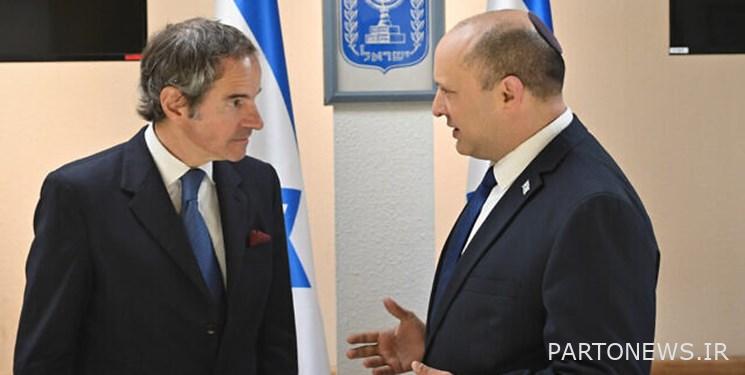Former IAEA inspector: I don’t like Grossi’s literature about Iran

According to the International Monitoring Group of Fars News Agency, Yusri Abushadi, the former inspector of the International Atomic Energy Agency, criticized the recent statements of Rafael Grossi, the current director general of this international organization, against Iran in an interview.
Abushadi, who won the Nobel Peace Prize in 2005 and is currently a member of Egypt’s Foreign Affairs Council, said in an interview with Rashatoudi news channel on Tuesday that the recent statements of Grossi, who said that Iran’s nuclear program is “capable and ambitious” He doesn’t like that it is progressing.
“They have an ambitious nuclear program that needs to be properly verified,” Grossi told reporters in Vienna on Tuesday. This program moves very, very quickly not only forward but also towards the margins. “Their nuclear program is growing both in terms of ambition and capacity.” (More details).
Abu Shadi said: “Today, I heard from the head of the Atomic Agency that Iran – he used two words – has increased its ambitions and capacity in the nuclear field. I didn’t like the word ambition.”
The former IAEA inspector added: “He (Grossi) is the head of an international neutral organization and should not use these words. Ambition is a word used for people and their way of thinking. Iran cannot be accused of using this word ambition.
“Nuclear flights” is a phrase that is usually used by the officials of the Zionist regime, the United States and European countries when explaining about Iran’s nuclear program. Rafael Grossi, although he has a technical mission regarding the nuclear program as the head of the Atomic Energy Agency, he usually uses the literature of these parties to describe Iran’s nuclear program.
The Islamic Republic of Iran has repeatedly asked Rafael Grossi to carry out his technical mission in this regard instead of issuing political statements about Iran’s nuclear program.
In another part of the interview with Rashatoudi, Al-Shadi criticized Washington’s behavior in imposing new sanctions against Iran by stating that Iran has not withdrawn from the JCPOA unlike the United States.
The Nobel Peace Prize winner said in response to the host’s comment that the US is talking about an agreement it has withdrawn from, saying: “In fact, the US is thinking its own way and unilaterally. “In fact, there are two sides here.”
He added: “You cannot force Iran to return to the agreement. [اگر میخواهید این کار را انجام بدهید] Why are you still intensifying the sanctions? It is not Iran that left the agreement, America did it. They cannot understand that sanctions against Iran will not work. “It is too late now and they have to come to an agreement and come back to the agreement at the same time as the sanctions are lifted.”
In the past years, Western countries led by the United States and the Zionist regime have accused Iran of pursuing military goals in the country’s nuclear program. Iran has strongly denied these claims.
Iran emphasizes that as one of the signatories of the Nuclear Non-Proliferation Treaty (NPT) and a member of the International Atomic Energy Agency, it has the right to access nuclear technology for peaceful purposes.
In addition, IAEA inspectors have visited Iran’s nuclear facilities many times but have never found any evidence that the country’s peaceful nuclear energy program has been diverted towards military purposes.
In addition, in 2015, Iran reached an agreement with the countries known as the 5+1 group to resolve tensions over its nuclear program. Despite the International Atomic Energy Agency’s acknowledgment of Iran’s adherence to all its obligations, the US government unilaterally withdrew from this agreement in May 2017.
end of message/
You can edit this article
Suggest this article for the first page

